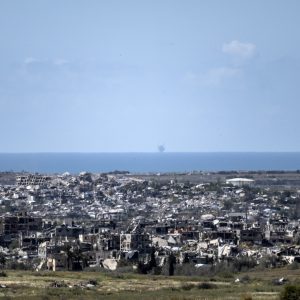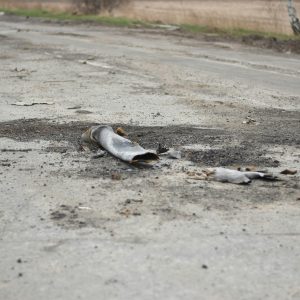UK accused of scapegoating migrants over Channel crossings
LONDON (AA) – The British government has been widely criticized over its controversial asylum policies to tackle the mounting number of English Channel crossings by migrants in small boats. It has been accused of “scapegoating” migrants for the country’s “broken immigration policy.”
Before Brexit, the UK was part of the European Union’s Dublin Regulation, which allowed it to return some asylum seekers to EU member states without considering their asylum claims.
When the UK left the EU in 2020, it became a country that had to make new return arrangements with any EU member state.
The UK’s new policies on asylum seekers, or the “immigration problem,” came under the spotlight mainly after it announced its Rwanda asylum plan in April last year, formally known as the UK and Rwanda Migration and Economic Development Partnership.
Under the then-Prime Minister Boris Johnson, people who were identified by the UK as being illegal immigrants or asylum seekers would be relocated to Rwanda, which the government claimed was a “fundamentally safe and secure country,” for processing, asylum, and resettlement.
The plan has been vehemently criticized by many NGOs and international organizations, including UN institutions, as well as politicians.
While the number of asylum applications in the UK hit a 20-year high of nearly 75,000 in 2022, it was still well below the EU average, as Germany received more than 240,000 asylum claims last year.
Following controversies, court decisions and criticism, 2023 began with Prime Minister Rishi Sunak identifying the issue as one of his five priorities in a January speech, after a record number of more than 45,000 people crossed the English Channel in small boats in 2022, up more than 60% from the previous year.
‘Deeply concerning’ new bill
Two months later in early March, the British government unveiled the Illegal Migration Bill, its toughest measure yet, aimed at removing migrants entering the country in small boats.
The plan includes detaining people for the first 28 days without bail or judicial review.
The bill has been met with criticism from human rights organizations and refugee advocates, who argue that it violates international law and the UK’s obligations under the Refugee Convention.
The bill also triggered mass protests across the UK, with concerned citizens and NGOs accusing the government of scapegoating migrants.
Calling on the government to review the move, “seeking asylum is not a crime” has been one of the slogans chanted at nationwide protests.
The language used in the bill and its representation of “illegal migrants” has also drawn fierce criticism.
Qirjako Qirko, Albania’s ambassador to the UK, has said that Albanian children in Britain are facing “racist bullying” in schools due to the debate over arrivals by small boats.
The Refugee Council charity said the new bill “ignores the fundamental point that most of the people in small boats are men, women and children escaping terror and bloodshed from countries.”
Another backlash to the bill, which led to a nearly week-long conflict, came from BBC Sports presenter Gary Lineker, who said: “This is just an immeasurably cruel policy directed at the most vulnerable people in a language that is not dissimilar to that used by Germany in the 30s.”
A couple of days after the new bill was announced, Sunak and French President Emmanuel Macron met in Paris, the first summit between the two countries in five years.
During the discussions, Sunak pledged that the UK will pay France around £476 million ($588 million) over the next three years as part of a deal to curb Channel crossings.
Housing unaccompanied asylum seekers at hotels is also another part of the issue for the UK, where an estimated 51,000 migrants are believed to be staying in 395 hotels at a cost of more than £6 million a day.
In its latest move, the British government on Wednesday laid out the details of a plan under which asylum seekers and migrants will be placed in former military barracks, barges and ships, as it tries to cut down on the costs of providing temporary hotel accommodation.












